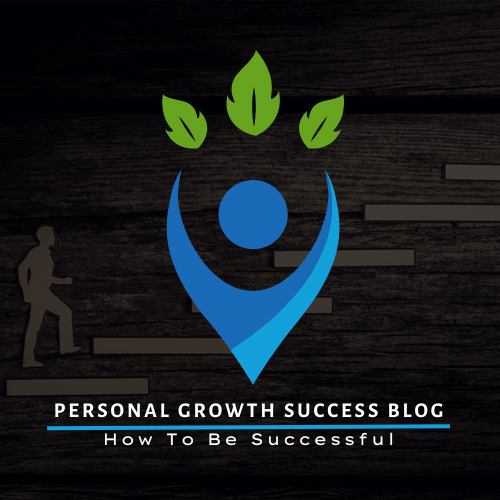
Overcoming adversity is a crucial aspect of achieving success, whether it’s in your personal or professional life. Challenges can come in the form of difficult situations, overwhelming obstacles, or bad officiating just as easily as they can be opportunities for growth. Having a positive and growth mindset is essential in navigating through adversity. In this chapter, we’ll discuss the importance of adopting a positive and growth mindset to overcome adversity and achieve peak performance. We’ll also look at some common challenges people face when dealing with adversity and at the end, provide you with a step-by-step guide to help you rise above them. Whether it’s facing fear or building resilience, this guide will equip you with the tools to navigate even the toughest situations.

What Is Adversity?
Adversity refers to facing challenging or difficult situations in life that can cause emotional, mental, or physical stress. These hardships can come in various forms such as financial difficulties, health issues, personal conflicts, or professional obstacles. Adversity can test one’s mental and emotional resilience and can often be a catalyst for growth, self-discovery, and success. It is important to understand how to overcome challenges and adversity to lead a fulfilling and successful life.
Why Facing Adversity Is Necessary
Facing adversity is a necessary part of life. Adversity provides opportunities for personal growth and character development by teaching us valuable life lessons about our strengths and weaknesses. It is through facing adversity that we learn to cultivate the skills we need to overcome obstacles and to achieve success.
Adversity provides opportunities for growth and building resilience by teaching adaptability, positive thinking, and perseverance in challenging circumstances. These skills are essential for developing the confidence and independence necessary to pursue our goals. Adversity also helps us build a support system, motivating us to connect with others who share our struggles and to learn from their experiences.
Overcoming Fear of Adversity
Overcoming fear of adversity is fundamental to achieving success and developing resilience. Adversity is inevitable in life, but it can be an opportunity for growth and personal development. Fear of adversity can hold us back from pursuing our goals and making meaningful changes in our lives. In this article, we’ll explore the impact of fear on our ability to face challenges, and the strategies we can use to overcome it and overcome adversity.
Recognizing Your Fears
Overcoming adversity is a challenging but critical task that can unlock new opportunities and personal growth. However, before taking any steps, recognizing your fears is an essential first step. Fears come in various forms, often preventing individuals from realizing their true potential. Managing your fears is crucial for overcoming challenges or tough situations.
Common fears, such as the fear of failure, fear of rejection, or the fear of the unknown, can paralyze individuals, leaving them powerless. When fears have the upper hand, it’s difficult to take the necessary steps for growth. Recognizing your fears not only makes it easier to manage them, but it also gives you valuable intel into why you might be struggling. Failure to recognize your fears can lead to stagnation, which is detrimental to personal and professional growth.
Ultimately, the ability to overcome adversity lies in recognizing your fears and taking the necessary steps to manage them. Facing your fears often seems daunting, but it’s crucial to remember that it’s the first step towards growth and success. It’s never too late to start recognizing your fears and taking small yet necessary steps towards a fulfilling life.
Creating a Positive Mindset
Creating a positive mindset is crucial in overcoming adversity and achieving success. Our attitudes and beliefs shape how we perceive difficult situations, and a positive mindset can help individuals reframe their problems in a more optimistic light. By developing a positive mindset, individuals can view challenges as opportunities for growth and see the potential for positive outcomes even in the toughest of situations.
To cultivate a positive mindset, it’s essential to catch negative self-talk and replace it with empowering beliefs. Negative thoughts and limiting beliefs can create feelings of helplessness and discourage individuals from taking action towards their goals. By replacing negative self-talk with empowering beliefs, individuals can work towards their goals with a greater sense of confidence and enthusiasm. Additionally, practicing gratitude and optimism can help shift one’s focus from what’s lacking to what’s already present, fostering a sense of abundance and positivity.
It’s also crucial to control one’s inner narrative and avoid stories that keep individuals stuck in a victim mindset. Our inner narrative is a powerful voice that influences our thoughts, emotions, and behaviors. By recognizing and challenging negative narratives, individuals can shift towards a more positive and empowering perspective. This can involve questioning assumptions about oneself, exploring alternate perspectives and creating a more positive self-image.
Developing a Growth Mindset
Developing a growth mindset is a crucial step to overcoming adversity and achieving success. The concept of a growth mindset involves the belief that skills and abilities can be developed through dedication, hard work, and perseverance. This mindset fosters an openness to learning and a willingness to embrace new challenges, which can lead to increased resilience and determination in the face of adversity.
To cultivate a growth mindset, individuals should embrace challenges and view them as opportunities for growth and learning. Instead of fearing failure, individuals with a growth mindset understand that failure is an essential part of the learning process. Seeking feedback from others and learning from mistakes can also help individuals develop a growth mindset. Self-reflection is also a crucial aspect of developing a growth mindset. By breaking self-limiting beliefs and changing negative self-talk, individuals can increase their sense of self-efficacy and resilience.
Developing a growth mindset requires persistence and determination. It takes time and effort to change deeply ingrained beliefs and habits, but the benefits of a growth mindset are worth it. By embracing challenges, learning from failures, and seeking to develop skills and abilities, individuals can increase their resilience and achieve their goals. Through self-reflection and a commitment to personal growth, individuals can cultivate a growth mindset that will serve them well in all aspects of life.

Conclusion
In conclusion, adopting a positive and growth mindset is crucial when facing adversity. Overcoming challenges requires recognizing your fears, creating a positive mindset, and developing a growth mindset. By seeing adversity as an opportunity for growth, focusing on what you want, and taking things one step at a time, you can overcome any obstacle. However, it’s important to remember that every situation is different, and what works for one person may not work for another. Therefore, it’s crucial to find what works for you and to keep a positive mindset. With persistence and a growth mindset, you can rise above adversity and achieve success.







